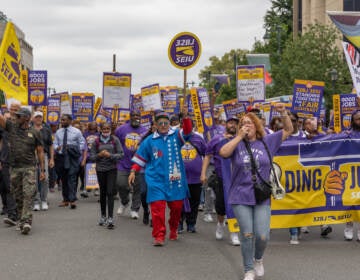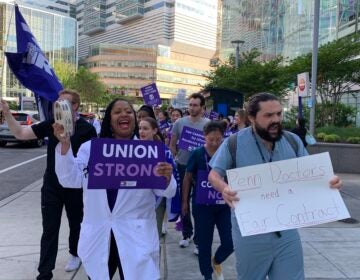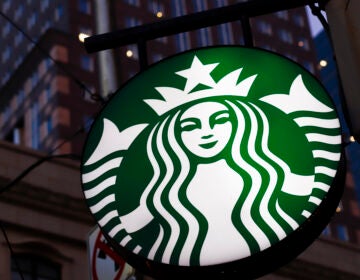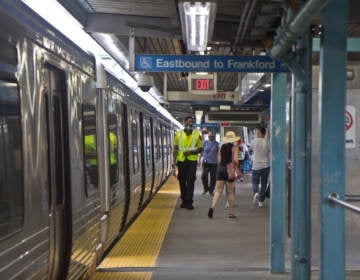Philly’s Good Karma Cafe Workers United union may dissolve
More than a year after Good Karma Cafe workers voted for a union, there’s still no contract so there’s a new election that may kick out Workers United.
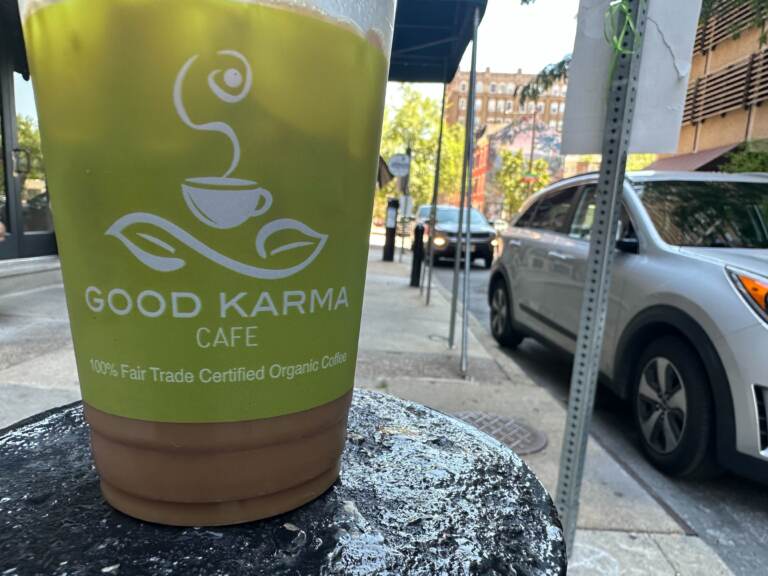
In March 2022, the vast majority of workers at Good Karma Cafe voted to unionize, now 19 employees will vote on whether to dissolve the Workers United union. (Kristen Mosbrucker-Garza/WHYY)
The Philadelphia Joint Board of Workers United, which stood up a new union chapter focused on organizing independent food service retailers in the region, may lose some members in early September.
That’s because Good Karma Cafe baristas are voting on September 7 about whether to decertify its union. It was only a year and a half ago when the overwhelming majority of workers voted to form a union but it hasn’t yet negotiated a first contract.
If the union loses the upcoming election, it will be dissolved after an appeals process through the National Labor Relations Board.
The National Right to Work Foundation is representing Good Karma workers for free in the decertification process. President Mark Mix claims the workers reached out to his organization for pro bono legal help after turnover and short-staffing after the union vote went through.
“The company has lawyers, the union has lawyers, the only people who don’t have lawyers are the employees,” Mix said. “Most of the stores that we’re working with, they’re telling us that the people that were pushing unionization are all gone.”
But it’s a one-time opportunity, Mix said.
“We’ll walk away if the union wins the election,” he said.
In March 2022, out of 29 eligible employees, 20 workers voted in favor of unionizing Good Karma Cafe and 3 voted against it. At the time, workers were pushing for a $15 an hour minimum wage, up from $11 an hour.
Since the union vote, the cafe temporarily shuttered two of its four locations, one of which after allegations of embezzlement inside the company. Good Karma Cafe’s owner Shawn Nesbit did not respond to several requests for an interview.
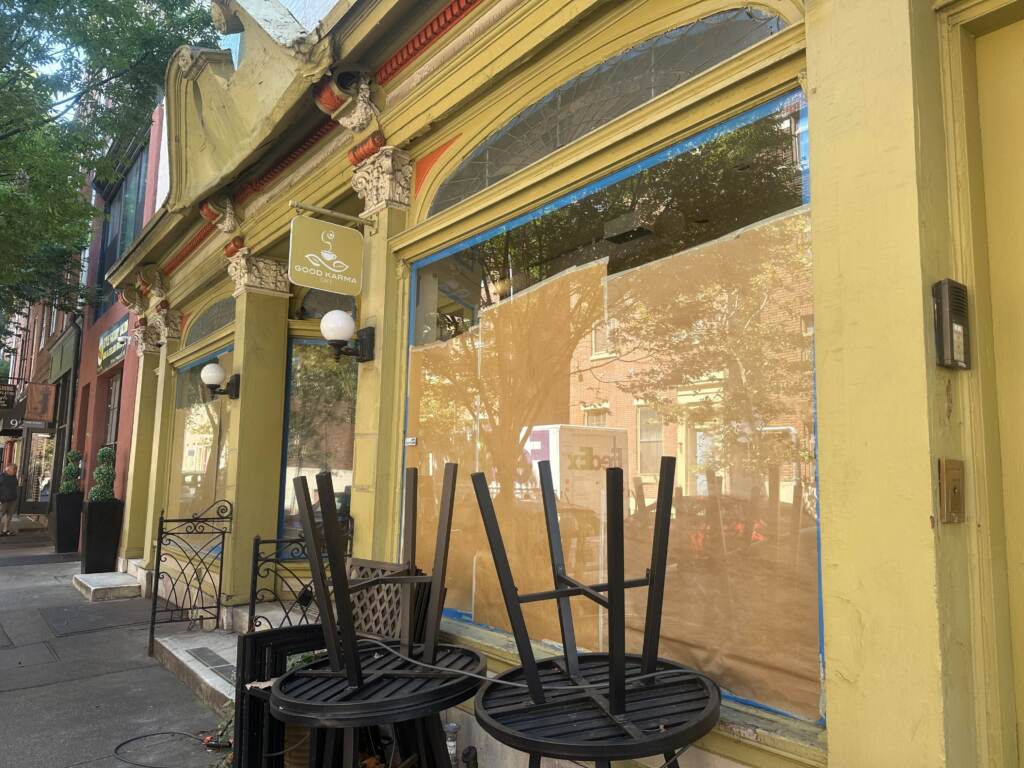
In August 2023, there were 19 eligible employees slated to vote across two locations.
The smaller the union, the more likely workers will vote to dissolve it, says labor economist Enrique Lopezlira, director of the Low-Wage Work program at the University of California at Berkeley Labor Center.
“The smaller the bargaining unit, the less likely that the union will win a decertification vote,” Lopezlira said.
Often, employers will lay off union organizers and delay the negotiating process.
“In hopes that workers will turn over, so that when new workers come in they don’t have the history of the fight that happened to get a union in the first place,” he said.
One Good Karma Cafe worker represented by the National Right to Work Foundation said in a statement that “a lot of employee turnover” and chronic lack of staffing led to their petition to decertify the union.
“Workers United union officials have been bad for the stability of Good Karma and have not stood up for the interests of me and my coworkers,” said Marco Camponeschi.
Workers United declined an interview for this news story but submitted a statement.
“The National Right to Work Foundation is virulently anti-union, and the same [third] party organization that is assisting corporations like Starbucks wage an illegal union busting campaign,” according to the Workers United statement. “Ownership at Good Karma has engaged in union busting activities since the moment their workers decided to form a union and join the Philadelphia Joint Board of Workers United. This includes retaliating against workers for organizing activity, closing down multiple locations in order to purge the workforce of pro-union sentiment, and dragging their feet in bargaining in order to stall the momentum of union leaders fighting for improved working conditions.”
Workers United says that they are confident workers will still vote to keep the union at Good Karma Cafe.
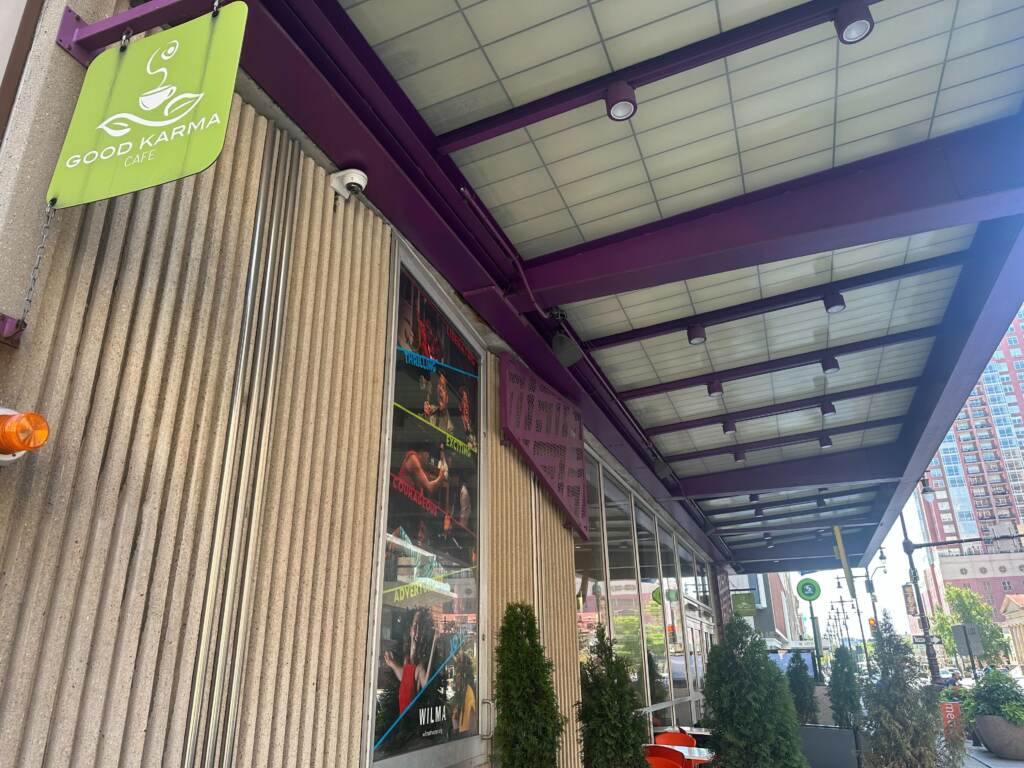
“Despite all of Good Karma and the National Right to Work Foundation’s efforts to quash union activity in Philadelphia, we are confident that workers, when given an opportunity to choose for themselves in a free and fair election, will determine to band together and maintain their presence as a union. Employers who union bust do not get the last word.”
The entire situation is unusual, says Todd Vachon, assistant professor of Labor Studies and Employment Relations at Rutgers University.
“The decertification part is definitely kind of an anomaly,” he said. “The larger trend is that we’re seeing a lot of workers and particularly young workers that are very supportive of unions and they’re organizing in their workplaces in this industry that has had a historically low unionization rate.”
Vachon says that since the COVID-19 pandemic began more than three years ago, there was a broader unionization effort that had been brewing since the Great Recession.
“A lot of it definitely did come out of the pandemic. We saw a lot of concerns over workplace health and safety,” he said.
But there’s been historically quite low unionization in food preparation jobs — fewer than 4% nationwide — because many are part-time employees, there’s already a lot of turnover and many younger workers didn’t see service jobs as long-term.
“Going to work at Starbucks coming out of college used to be oh, maybe I’ll work here for a year and then I’m going to find a job,” he said. “But there’s this realization among a lot of people, actually this is the job.”
The city of Philadelphia already requires some labor protections that are usually negotiated in a union contract. In 2015, the city began requiring paid sick leave for all workers at companies with 10 employees or more. In 2020, the city’s fair workweek law mandated that employers with at least 250 workers and 30 or more locations worldwide must provide predictable work schedules with two weeks’ notice of any changes.

Get daily updates from WHYY News!
WHYY is your source for fact-based, in-depth journalism and information. As a nonprofit organization, we rely on financial support from readers like you. Please give today.



